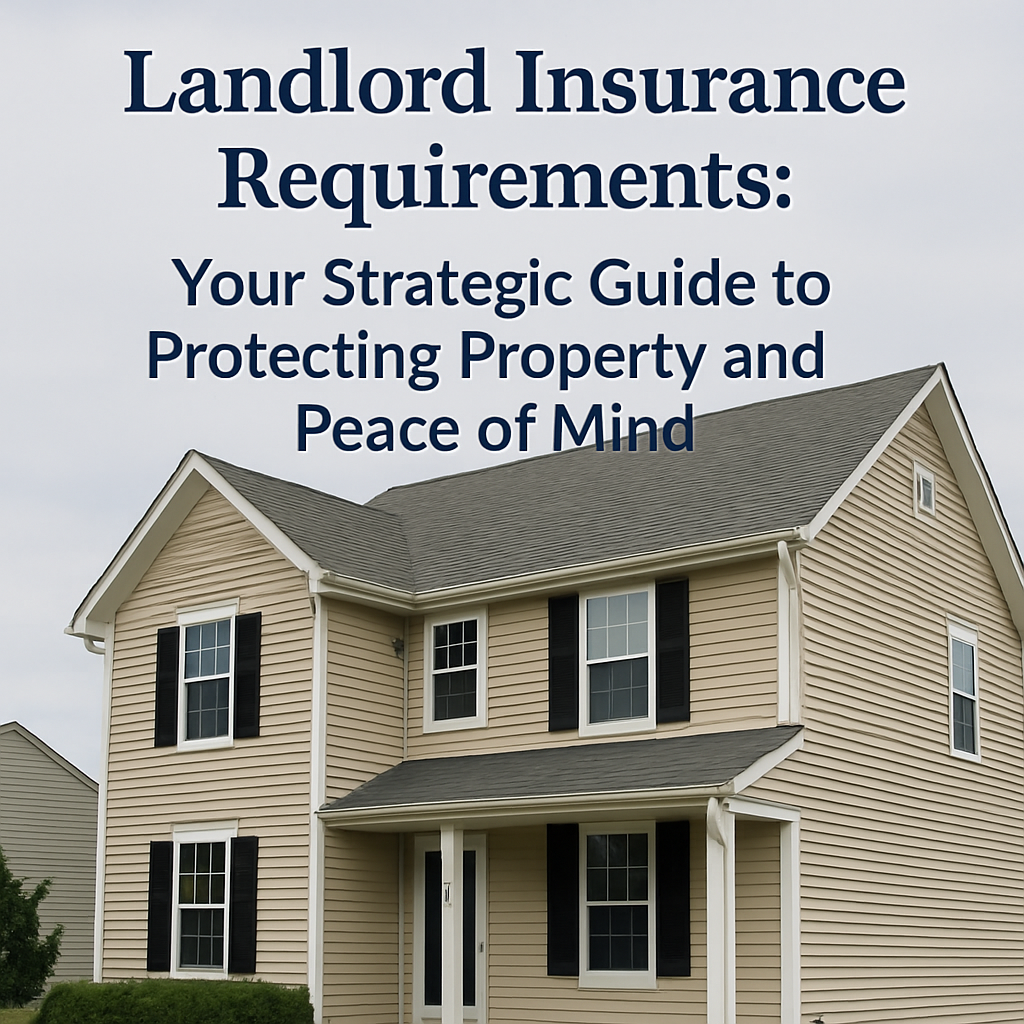
Owning rental property can be rewarding—but it also brings serious risks. Many landlords aren’t sure what insurance coverage they actually need, and they worry about costly gaps or paying for things that don’t really protect them. Navigating landlord insurance requirements doesn’t have to be confusing or overwhelming.
When you approach landlord insurance as a tool to strengthen your financial future—not just another bill—you put yourself in control. This guide breaks down the essentials so you can cover your risks without wasting money, and build true peace of mind for the long haul.
Why Landlord Insurance Matters: Protect What You’ve Worked Hard For
Being a landlord means more than collecting rent. It means managing risks like tenant injuries, weather damage, vandalism, and liability claims that can cost thousands—or even jeopardize your business. Without the right coverage, you could be responsible for repairs, legal fees, or medical bills out of pocket.
Understanding landlord insurance isn’t just about meeting legal requirements. It’s about protecting the income and assets you’ve worked so hard to build.
Common policies every landlord should know about:
- Property Insurance – Covers physical damage to buildings and structures.
- Liability Insurance – Protects you if someone is injured on your property.
- Loss of Rental Income – Covers lost rent if your property becomes uninhabitable.
- Additional Coverages – Like flood, earthquake, or appliance breakdown protection.
Each policy serves a different purpose, so it’s critical to tailor your coverage based on your property’s real-world risks.
Breaking Down the Coverage: What You Actually Need
1. Property Insurance: Safeguard Your Building
Your property is the foundation of your rental business. Property insurance protects you from events like fire, storms, or vandalism. Keep in mind—it usually doesn’t cover tenant belongings. Encourage tenants to carry renters insurance.
When choosing coverage, look at:
- Replacement cost vs. actual cash value.
- Coverage for garages, fences, or other structures.
- Policy limits that reflect current rebuild costs.
Being underinsured leaves you exposed; being overinsured means you’re wasting money. Finding the right balance protects your budget and your business.
2. Liability Insurance: Protect Yourself from Lawsuits
A visitor slips on icy steps. A tenant gets hurt because of a maintenance issue. These situations can trigger expensive lawsuits. Liability insurance covers legal defense, settlements, and medical bills.
Look for:
- High enough limits to truly cover worst-case scenarios.
- Legal fees covered outside your limits (if possible).
- Options like umbrella policies for even broader protection.
Liability insurance isn’t optional—it’s a smart, critical layer of protection.
3. Loss of Rental Income: Keep Your Cash Flow Alive
If damage forces tenants out, loss of rental income insurance helps cover your rent during repairs. Without it, you could struggle to pay mortgages and taxes.
Key things to check:
- Waiting periods before coverage kicks in.
- How long the payments will continue.
- Whether tenant relocation help is included.
Cash flow interruptions are common—plan for them before they happen.
4. Additional Coverages: Customize Based on Location
Your property’s location may create special needs:
- Flood insurance for flood-prone areas.
- Earthquake coverage in seismic zones.
- Equipment breakdown protection for appliances or HVAC.
Not every landlord needs every policy. Choose based on actual risk—not fear.
Stay Compliant with Legal and Mortgage Requirements
Some states require specific coverage if you rent out property, especially multi-family units. Mortgage lenders almost always demand both property and liability insurance. Double-check your loan paperwork and local laws so you don’t get caught off guard.
Smart Ways to Save on Landlord Insurance
Protecting your investment shouldn’t crush your budget. These strategies help:
- Bundle Policies – Insurers often discount bundled property, liability, and even auto policies.
- Choose the Right Deductible – Higher deductibles lower premiums. Pick an amount you can easily cover if you have a claim.
- Maintain the Property – Well-kept properties get better insurance rates.
- Work with a Trusted Local Agency – It’s faster and safer to tailor protection when you partner with someone who knows landlord risks firsthand.
Talk with someone who understands rental property protection. We’ll help you build a custom plan that fits your goals.
Don’t Overlook New Threats: Cybersecurity for Smart Rentals
Smart locks, security cameras, and connected thermostats are becoming normal in rental properties. But they come with digital risks.
The CrowdStrike 2024 Global Threat Report shows cyberattacks on smart home devices continue to rise each year.
Protect your property and tenants by:
- Using strong, unique passwords with two-factor authentication.
- Keeping devices updated.
- Choosing systems with encrypted communication.
- Teaching tenants basic tech safety.
Cybersecurity and physical insurance together offer full-circle protection for today’s properties.
Insurance Isn’t “Set It and Forget It”
Your rental property changes. So should your insurance. Schedule a yearly review to:
- Update your property’s insured value.
- Add or remove coverages based on upgrades or changes.
- Catch new legal or lender requirements early.
Meanwhile, regular property maintenance reduces risks—and can even lower premiums.
Learn how we make it simple at How It Works.
Quick FAQs
Is landlord insurance legally required?
Not always, but most mortgage lenders require it.
Does landlord insurance cover tenant damage?
It usually covers only malicious damage—not normal wear and tear.
Should tenants carry renters insurance?
Yes. It protects them—and reduces your exposure.
How can I save on landlord insurance?
Bundle policies, pick smart deductibles, maintain your property, and shop around yearly.
What happens after I buy insurance?
Keep your documents handy, review annually, and notify your insurer about property changes.
Ready to protect your property the smart way?
Schedule a quick call with our team—we’ll help you secure the right coverage without the guesswork.
Or, start your quote online here and take control of your rental success today.
Because when your property is protected, your future is too.
